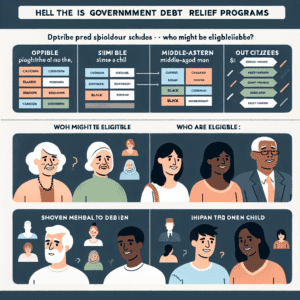“Save Smart, Live Fully – Unlock the Secret to Guilt-Free Savings!”
Smart Budgeting: How to Cut Costs Without Sacrificing Joy
Saving money often feels like a daunting task, especially when it seems to require giving up the things that bring joy and comfort. However, smart budgeting is not about deprivation; rather, it is about making intentional choices that allow for financial stability while still enjoying life. By adopting a strategic approach to spending, it is possible to cut costs without feeling restricted, ensuring that financial goals are met without sacrificing happiness.
One of the most effective ways to save money without feeling deprived is to prioritize spending based on personal values. Instead of eliminating all discretionary expenses, it is beneficial to identify which purchases bring the most satisfaction and which can be reduced or eliminated without significant impact. For example, if dining out is a source of joy, it may be more practical to cut back on other non-essential expenses, such as unused subscriptions or impulse purchases, rather than eliminating restaurant visits entirely. This approach ensures that spending aligns with personal priorities while still allowing for financial savings.
Another key strategy is to adopt mindful spending habits. Often, unnecessary expenses accumulate due to habitual or impulsive purchases. By taking a moment to evaluate whether a purchase is truly necessary or if a more cost-effective alternative exists, it becomes easier to make informed financial decisions. Simple changes, such as meal planning to reduce food waste, using public transportation instead of driving, or purchasing quality items that last longer, can lead to significant savings over time. Additionally, setting a waiting period before making non-essential purchases can help distinguish between impulse buys and meaningful investments.
In addition to mindful spending, finding creative ways to enjoy life without excessive costs can make a significant difference. Many activities that bring joy do not require large financial commitments. Exploring free or low-cost entertainment options, such as community events, outdoor activities, or library resources, can provide fulfilling experiences without straining the budget. Similarly, embracing do-it-yourself projects, such as cooking at home instead of ordering takeout or learning new skills through online tutorials, can be both enjoyable and cost-effective. By shifting the focus from spending to experiences, it becomes possible to maintain a fulfilling lifestyle while keeping expenses in check.
Furthermore, taking advantage of discounts, rewards programs, and strategic shopping habits can help maximize savings without reducing quality of life. Many retailers offer loyalty programs, cashback rewards, and seasonal discounts that can significantly lower costs on everyday purchases. Additionally, buying in bulk, using coupons, and comparing prices before making a purchase can lead to substantial savings over time. By being proactive in seeking out cost-saving opportunities, it is possible to maintain financial discipline without feeling restricted.
Ultimately, the key to saving money without feeling deprived lies in striking a balance between financial responsibility and personal enjoyment. By prioritizing spending based on values, practicing mindful consumption, exploring cost-effective alternatives, and leveraging discounts, it is possible to achieve financial goals without sacrificing happiness. Smart budgeting is not about eliminating joy but rather about making thoughtful choices that allow for both financial security and a fulfilling lifestyle. With the right approach, saving money can become a rewarding and sustainable habit rather than a burdensome sacrifice.
Mindful Spending: The Key to Financial Freedom Without Guilt

One of the biggest challenges people face when trying to save money is the fear of feeling deprived. The idea of cutting back on expenses often brings to mind images of sacrificing enjoyable experiences, giving up favorite indulgences, and constantly worrying about every dollar spent. However, the key to financial freedom does not lie in extreme frugality or rigid budgeting but rather in mindful spending. By being intentional with financial decisions, individuals can save money without feeling restricted, ultimately achieving their financial goals while still enjoying life.
Mindful spending begins with awareness. Many people spend money unconsciously, making purchases out of habit, convenience, or social pressure rather than genuine necessity or desire. This lack of awareness often leads to unnecessary expenses that do not contribute to long-term happiness or financial stability. By taking the time to evaluate spending habits, individuals can identify areas where money is being wasted and make more informed choices. This does not mean eliminating all discretionary spending but rather ensuring that each purchase aligns with personal values and priorities.
One effective way to practice mindful spending is to differentiate between needs and wants. While basic necessities such as food, housing, and healthcare are essential, many other expenses fall into the category of wants. This does not mean that wants should be completely avoided, but rather that they should be approached with intentionality. Before making a purchase, it is helpful to ask whether the item or experience will provide lasting value or if it is simply an impulse buy. By pausing to reflect on the true importance of a purchase, individuals can avoid unnecessary spending and direct their money toward things that truly matter.
Another important aspect of mindful spending is setting clear financial goals. When people have a specific objective in mind, such as building an emergency fund, saving for a home, or planning for retirement, they are more likely to make thoughtful financial decisions. Having a goal provides motivation and helps prioritize spending, making it easier to resist unnecessary purchases. Additionally, tracking progress toward financial goals can be highly rewarding, reinforcing positive spending habits and creating a sense of accomplishment.
Incorporating mindful spending into daily life also involves finding ways to enjoy experiences without excessive costs. Many people equate spending money with happiness, but in reality, some of the most fulfilling experiences are either free or low-cost. Activities such as spending time with loved ones, exploring nature, or engaging in creative hobbies can provide immense joy without straining finances. By shifting the focus from material possessions to meaningful experiences, individuals can maintain a high quality of life while still saving money.
Furthermore, practicing gratitude can significantly impact spending habits. When people appreciate what they already have, they are less likely to seek fulfillment through unnecessary purchases. Taking time to reflect on existing possessions and experiences fosters contentment and reduces the urge to spend impulsively. This mindset shift not only supports financial well-being but also enhances overall life satisfaction.
Ultimately, mindful spending is about making intentional choices that align with personal values and financial goals. By cultivating awareness, distinguishing between needs and wants, setting clear objectives, and embracing gratitude, individuals can save money without feeling deprived. This approach allows for financial freedom without guilt, ensuring a balanced and fulfilling life while securing a stable financial future.
Frugal Living Hacks: Save More While Enjoying Life
Many people associate saving money with sacrifice, believing that cutting expenses means giving up the things they enjoy. However, adopting a frugal lifestyle does not have to feel restrictive. By making intentional choices and focusing on value rather than cost alone, it is possible to save money while still enjoying life. The key lies in finding ways to reduce expenses without compromising on quality or personal happiness.
One of the most effective strategies for saving money without feeling deprived is to prioritize spending on what truly matters. Instead of eliminating all discretionary expenses, consider identifying the purchases that bring the most joy and cutting back on those that do not add significant value. For example, if dining out is a favorite activity, rather than eliminating restaurant visits entirely, one could opt for less frequent outings or choose lunch specials instead of dinner menus. This approach allows for continued enjoyment while still reducing overall spending.
Another practical way to save money is by embracing the concept of mindful consumption. Many people make impulse purchases that provide only temporary satisfaction, leading to unnecessary expenses. By taking a more deliberate approach to shopping, such as waiting 24 hours before making a non-essential purchase, individuals can avoid unnecessary spending and focus on acquiring items that truly enhance their lives. Additionally, buying high-quality products that last longer can be more cost-effective in the long run than opting for cheaper alternatives that need frequent replacement.
Incorporating cost-saving habits into daily routines can also make a significant difference. Simple changes, such as brewing coffee at home instead of purchasing it from a café or preparing homemade meals instead of ordering takeout, can lead to substantial savings over time. Moreover, learning basic cooking skills not only reduces food expenses but also allows for healthier and more satisfying meals. Similarly, using public transportation, carpooling, or biking instead of driving alone can help cut transportation costs while also benefiting the environment.
Taking advantage of discounts, rewards programs, and cashback offers is another effective way to save money without sacrificing enjoyment. Many retailers and service providers offer loyalty programs that provide discounts or cashback on purchases. By strategically using these programs, individuals can continue to enjoy their favorite products and services at a lower cost. Additionally, shopping during sales events or using coupons can further reduce expenses without requiring major lifestyle changes.
Entertainment and leisure activities do not have to be expensive to be enjoyable. Many communities offer free or low-cost events, such as outdoor concerts, museum days, and local festivals, which provide opportunities for entertainment without a hefty price tag. Exploring nature through hiking, picnicking, or visiting public parks can also be a fulfilling and cost-effective way to spend leisure time. Furthermore, borrowing books, movies, or games from a library instead of purchasing them can provide access to a wide range of entertainment options at no cost.
Ultimately, the secret to saving money without feeling deprived lies in making thoughtful choices that align with personal values and priorities. By focusing on what truly brings happiness, practicing mindful spending, and incorporating cost-saving habits into daily life, it is possible to achieve financial goals while still enjoying a fulfilling and rewarding lifestyle.
















